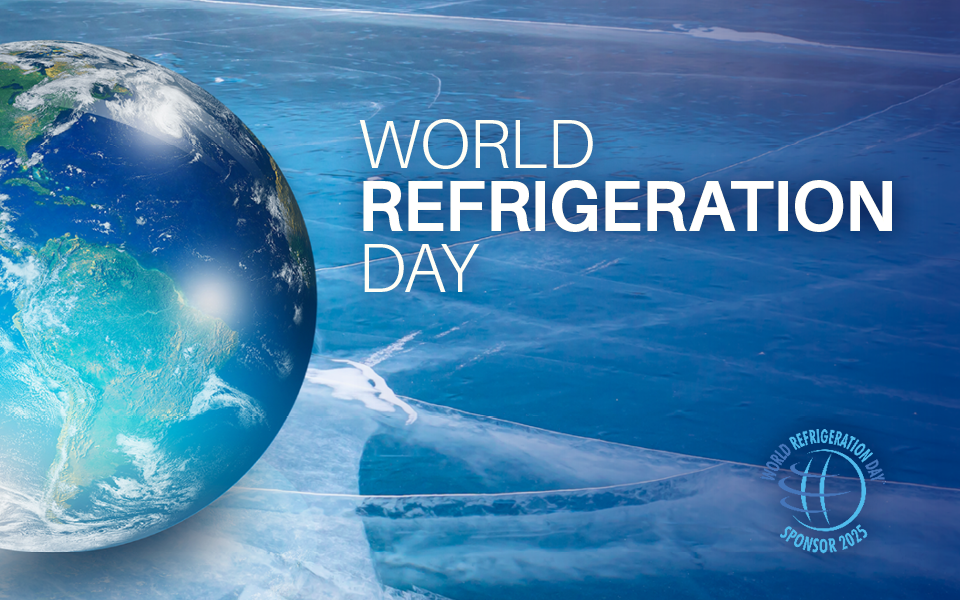Electrical component considerations for A2L system safety
Heating, ventilation, air conditioning and refrigeration (HVACR) is everywhere. Silently, it fuels our modern world, preserving the food we eat, safeguarding the medicines we rely on, and ensuring the comfort in homes and buildings. That’s why June 26th, World Refrigeration Day, matters. More than just a date on the calendar, it is a global acknowledgement of the vital role HVACR solutions play in our lives while underscoring the need for innovation and sustainability in our industry.

This year marks the seventh annual celebration of World Refrigeration Day. The 2025 theme, “Cool Skills”, emphasizes the importance of expertise and innovation in advancing refrigeration, comfort cooling and heating technologies. At Copeland, we are a sponsor of this movement, honoring the incredible history, groundbreaking innovations and collaborative efforts shaping the future of HVACR technologies into a more sustainable, efficient tomorrow.
The History and Significance of World Refrigeration Day
World Refrigeration Day was established in 2019 with a clear mission — to raise awareness of the HVACR industry’s profound importance. June 26th, the annual commemoration of World Refrigeration Day, marks the birth of Lord Kelvin, who made significant contributions to physics and temperature measurement, including the absolute temperature scale named in his honor. This day is more than a celebration; it’s a call to action for greater investment in sustainable, reliable and future-forward HVACR technologies.
Copeland’s Leadership in Sustainable HVACR Solutions
At Copeland, developing the next generation of sustainable HVACR technologies is more than just a business; it’s a responsibility. With a legacy spanning more than a century, we take pride in developing solutions that balance current market needs with long-term sustainability goals. Through dedicated research and development, innovation and cooperation with industry partners and stakeholders, we deliver solutions that minimize environmental impact while maintaining high performance and operational excellence.
Our mission extends beyond being a global solutions provider. We are stewards of progress, helping to redefine HVACR technologies in ways that protect the environment and improve communities worldwide.
Shaping the Future of HVACR
Today, the HVACR industry is undergoing a transformation, and Copeland stands at the forefront. Below are three key areas where we’re driving change and delivering global impact:
Advancing the Adoption of Low-GWP Refrigerants
By 2050, climate change may cause an additional 14.5 million deaths and $12.5 trillion in economic losses worldwide. The global shift toward low-GWP (global warming potential) and natural refrigerants is essential for addressing climate change. Copeland is tackling this challenge head-on by pioneering system designs that integrate seamlessly with these more environmentally friendly refrigerants.
Developing the next generation of HVACR technologies requires the use of existing and emerging lower-GWP refrigerants, particularly CO2, R-290 and A2Ls — each of which will play an important role in future equipment strategies. Today, with the alignment of environmental regulations, our industry is rapidly accelerating toward a lower-GWP future. Copeland has been preparing its compression, condensing units, heat pumps, controls and related system components for this transition for more than a decade.
Our innovative technologies empower customers worldwide to meet evolving regulatory requirements and sustainability goals while also maintaining exceptional performance standards. This transition isn’t just about meeting today’s needs; it’s a commitment to advancing refrigeration practices for a greener, healthier planet.
Supporting a Resilient and Sustainable Cold Chain
With approximately 1.3 billion tons of food wasted globally per year, the role of the cold chain is more critical than ever. By leveraging advanced refrigeration technologies, Copeland helps to ensure perishable goods are transported and stored safely, minimizing spoilage and enhancing accessibility worldwide. This commitment underscores our dedication to creating a more efficient, resilient, and environmentally responsible cold chain infrastructure that supports both global communities and sustainability goals.
Driving the Energy Transition
Decarbonization is at the heart of Copeland’s efforts to enable the energy transition. According to the International Energy Agency, heating in buildings is responsible for 4 gigatonnes (Gt) of CO2 emissions annually — about 10 percent of total global emissions. By stewarding and advancing the electrification of heating and cooling system technologies, we’re helping to facilitate a future driven by sustainable energy sources.
Our technology is engineered to optimize energy efficiency, reduce reliance on fossil fuels and minimize overall strain on the electric grid. Whether through partnerships, innovative energy management technologies or electrification strategies, Copeland is developing solutions to accelerate the shift toward a cleaner, more sustainable energy landscape.
Join Copeland in Celebrating World Refrigeration Day
World Refrigeration Day is more than a celebration; it’s an opportunity to look forward, take action, and collaborate and innovate on solutions that redefine what’s possible in HVACR.
We invite you to join us in honoring the legacy and future of cooling and heating technologies. Visit Copeland on LinkedIn or the World Refrigeration Day Hub for events, insights, and resources. Together, we can create sustainable HVACR technologies that make a meaningful impact — today but for generations to come.

8 proven strategies for rigorous cold chain management
Preparing for the approval and safe use of A2Ls in commercial refrigeration applications...
Protection for high-value shipments just got even better
We’re excited to announce the release of Copeland’s newest real-time tracker, the GO Real-Time...

Three proven strategies to prevent cargo theft
The over-the-road (OTR) transport industry is experiencing a surge in cargo thefts. As thieves...